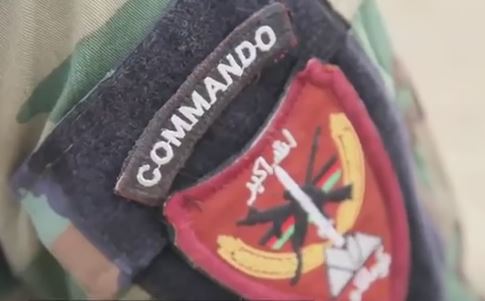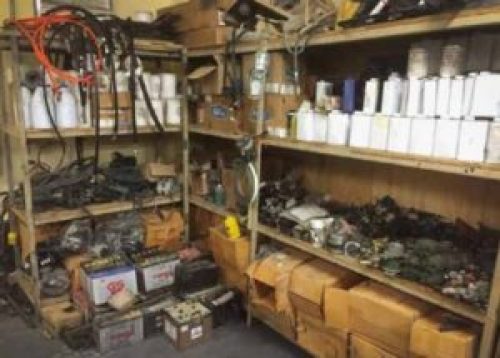
A SOF logistics advisor for the Special Operations Joint Task Force – Afghanistan describes the challenges of advising in an Afghan culture where the Western model of logistics just doesn’t quite work.
“The pull logistics system that has been taught to the Afghan military may not be the best choice for the culture in Afghanistan.”
Captain Ross A. Powers, a logistics officer, served as a senior logistics mentor with the Special Operations Joint Task Force – Afghanistan (SOJTF-A) during the Resolute Support Mission. Powers (as of May 2017) is the Headquarters Support Company commander for the 2nd Battalion, 7th Special Forces Group based on Eglin Air Force Base, Florida. 7th Special Forces Group has been supporting the Afghan mission since 2002 when 2nd Bn 7th SFGA deployed to Kandahar as part of the CJSOTF-A. Captain Powers has penned an article that puts the job of a SOF logistics advisor in Afghanistan in the limelight.

The Afghan National Army logistics system in Afghanistan has been broke ever since it was established. To a certain degree it continues to be inefficient and an impediment on the conduct of combat operations. Logistics advisors in Afghanistan are conducting Security Force Assistance (SFA) through the Train, Advise, and Assist (TAA) mission in an attempt to get the Afghan military logistics system functioning so that the Afghan Army can be sustained in the field and over the long-term. A SOF logistics advisor has the job of trying to get the Ministry of Defense (MoD) logistics system to adequately support the Afghan National Army Special Operations Command (ANASOC) and its special operations combat units.
Captain Powers describes how the Western military logistics system has not taken root in Afghanistan because it does not fit Afghanistan’s military or its culture. A Western style logistics operates as a ‘pull system’ – which relies on demand-driven data that helps formulate exact requirements resulting in exact quantities delivered on time. A ‘push system’ operates from forecasted data based on historical requirements. A ‘pull system’ is what the U.S. and its NATO allies has been trying to institute in the Afghan military for many years.
According to Powers, there are a number of reasons why the ‘pull system’ is ill-suited for the Afghan military. Factors that contribute to this miss-match include Afghan culture, topography, insecure supply routes, lack of inventory processes (they exist but are not followed), a hoarding mentality, reliance on computer systems in a computer-illiterate society, poor leadership, and corruption.
For a SOF logistics advisor – the TAA mission is even more complicated – as almost 80% of the offensive operations conducted in Afghanistan are by units of the Afghan Special Security Forces (ASSF). Fortunately, SOF logistic advisors can coordinate their TAA activities and receive assistance from Resolute Support HQs staff officers and advisors working in the Essential Function 5 Force Sustainment field.
Powers concludes his article with:
“Imposing a logistics system that cannot be maintained discourages Afghan soldiers and hampers progress toward building the Afghan military. The logistics TAA mission must be changed to fit the cultural mindset of the people operating the system.”
Read Captain Powers’ article “Moving Forward With Logistics Advising in Afghanistan”, Army Sustainment, May – June 2017, pages 13-14.
www.alu.army.mil/alog/2017/MAYJUN17/PDF/185867.pdf